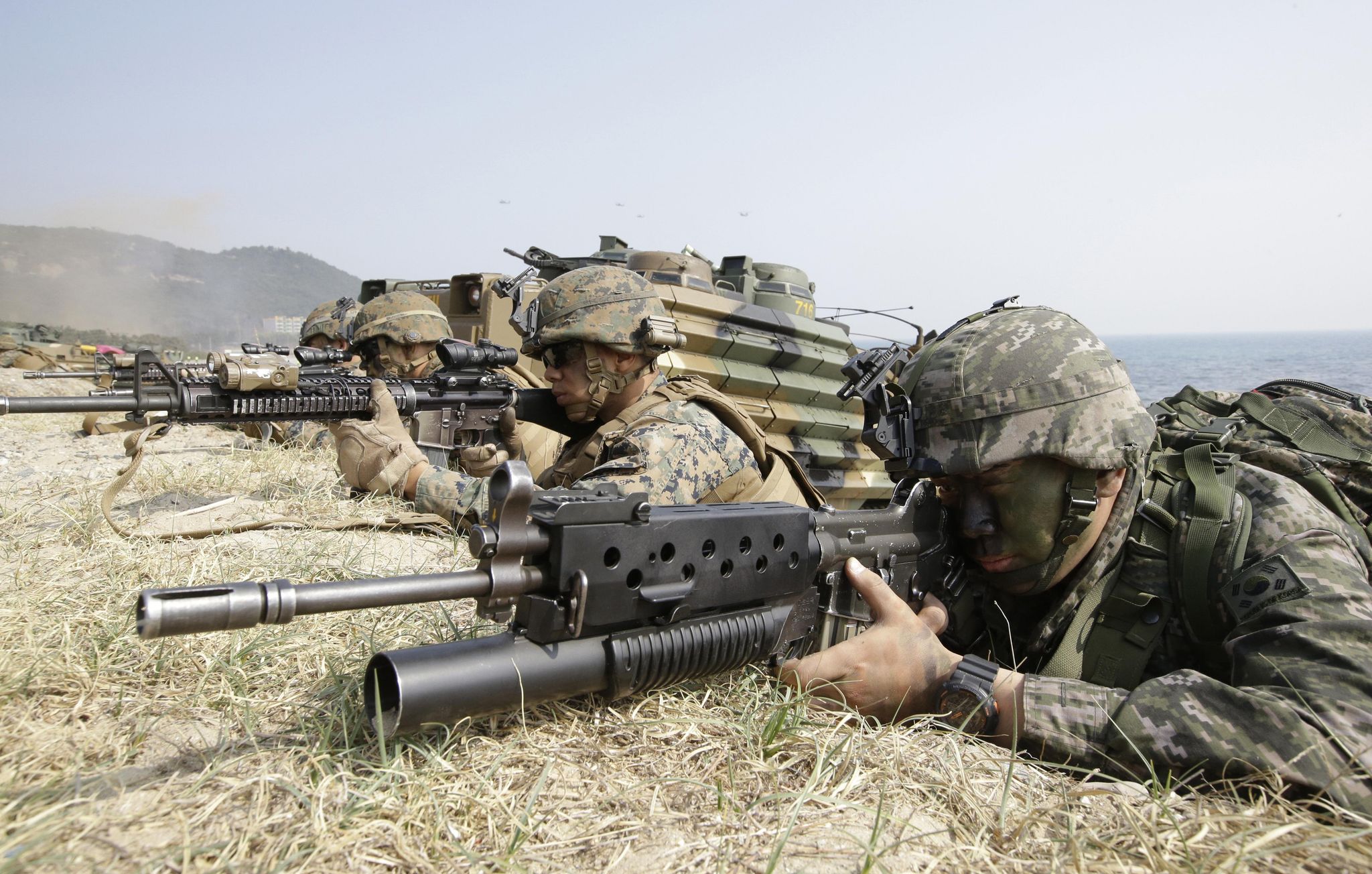
The Trump White House’s decision to suspend several, large-scale military exercises with South Korea earlier this year harmed U.S. readiness to respond to potential conflicts on the peninsula.
The Trump White House’s decision to suspend several, large-scale military exercises with South Korea earlier this year harmed U.S. readiness to respond to potential conflicts on the peninsula.
Army Gen. Robert Abrams, the administration’s pick to become the new top U.S. commander in South Korea, told lawmakers Tuesday the decision had degraded the ability for American forces to coordinate with their counterparts in Seoul, should hostilities break out between North Korea and the South.
Gen. Abrams, who is slated to replace current U.S. Forces-Korea Commander Gen. Vincent Brooks, made his comments on the effect of the suspended military drills during his confirmation hearing before the Senate Armed Services Committee, the Associated Press reports.
U.S. military leaders on the peninsula are in the midst of setting up several, smaller bilateral drills with South Korean forces, in an attempt to rebuild the lost readiness capabilities due to the suspended exercises, he told panel members alongside Navy Vice Adm. Craig Faller. Adm. Faller has been nominated to take over U.S. Southern Command.
Planning for next year’s iteration of the South Korean drills suspended this year is also ongoing, Gen. Abrams said, noting that no decision has been made by the White House or the Defense Department on whether those exercises would go forward.
Commanders are planning a number of smaller staff exercises to rebuild the ability of U.S. and allied forces to work together. He says planning is ongoing for large exercises next year, but alliance leaders will decide if they are canceled or not.
The move to indefinitely suspend large-scale war games between the U.S. and Seoul was ordered by the Trump White House shortly after the landmark deunclearization summit with the North in June. The decision was intended as an olive branch to Pyongyang, in an attempt to coerce the North Korean regime to embrace efforts to eliminate their nuclear capabilities.
But the State Department and Pentagon had been seemingly caught unaware of Mr. Trump’s cancellation of U.S. military drills on the peninsula, until the White House’s announcement. It came just as U.S. defense officials were in the midst of planning for one of those major exercise, dubbed Ulchi Freedom Guardian, which had been slated to begin in July.
Mr. Trump characterized the drills as “provocative” and a costly byproduct of the Cold War-era strategy being imparted by U.S. military leaders on the peninsula. Mr. Kim and others in the North Korean regime have repeatedly cited the provocative nature of the exercises, in its criticism of U.S. military operations in the region.






